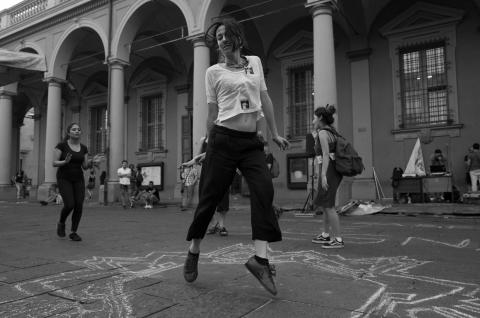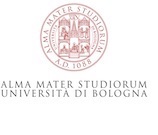
Bologna Social Practice Lab
In the last two decades, socially engaged art has entered the life of museums, universities, corporations, and even governments. Described as participatory art, relational aesthetics, and social practice, to name a few, the variety of terms and definitions for the phenomenon is as rich as its prolific and at times contradictory manifestations. Early champions like Tom Finkelpearl, Anne Pasternak, or Nicholas Bourriaud now hold top positions in official institutions.
While this is all cause for celebration, the mainstream embrace of these practices is rarely accompanied by a deeper understanding of their history, or an appreciation for the complexity of their methods. Universities are best equipped to provide a remedy by strengthening the impact and scope of social art with the rigorous structures so characteristic of the sciences and humanities at research institutions. Socially engaged art, on the other hand, may provide more traditional academic disciplines in those very institutions with fresh and unexpected approaches to interdisciplinary work and collaboration, a higher degree of public engagement, as well as deeper student involvement through a full range of knowledge production that intentionally balances intellectual, cognitive, and affective dimensions.
Ultimately, the promotion of social art practice and its integration to the university is only the first step towards the more relevant goal of reevaluating the notion of ‘arts and sciences’ and also creating a more socially engaged humanities. Regardless of any existing connection to art, social practice may in fact be restored to its rightful place as a core mechanism of intellectual life, extending far outside the art gallery, the university classroom, or the research lab. By its very name, the Social Practice Lab thus resists and complements traditions that see individualist introspection as the main access to scientific and artistic discovery. We will attempt to know the world through each other and each other through the world, even as others still prefer to know themselves.
The Bologna Social Practice Lab, coordinated by Pedro Lasch in collaboration with Rossella Mazzaglia, offers participating students the opportunity to conduct scholarly research and immediately direct it towards socially engaged productions that go beyond conventional academic formats.
It is the only GSCT Summer School activity that integrates international students (up to 20) with Bologna-based students, artists, and activists (up to 20) on a daily basis. Joint productions take place in social media, museums, public areas, historical buildings, popular markets, occupied spaces, and sites of resistance. Students have the option of staying involved with the projects after the 2017 Summer School ends through transnational social components and collaborative online platforms. These will continue through the following year and result in a final set of interventions and an exhibition in Bologna during 2018 Summer School session.
The research and production groups of the Bologna Social Practice Lab have been developed with the overarching framework of Polit(t)ico: Interventions for Bologna (2017-2018). Taking its Italian name from Giotto’s famous painting in Bologna, the series conflates notions of politics with the historical art form of the polyptych. Distinct topics and approaches for each intervention are developed within specific communities and social contexts over two years, with the GSCT Summer School weeks as the densest and most important periods. Seen together as a polittico (polyptych), the works paint a slowly emerging picture of social and aesthetic engagement with Bologna as a site of political resistance, and social movements worldwide. They also add complexity to the rich discursive context of the oldest university in Europe, highlighting within it the creative processes of acting, making, and doing.
Polit(t)ico is composed of the following projects:



